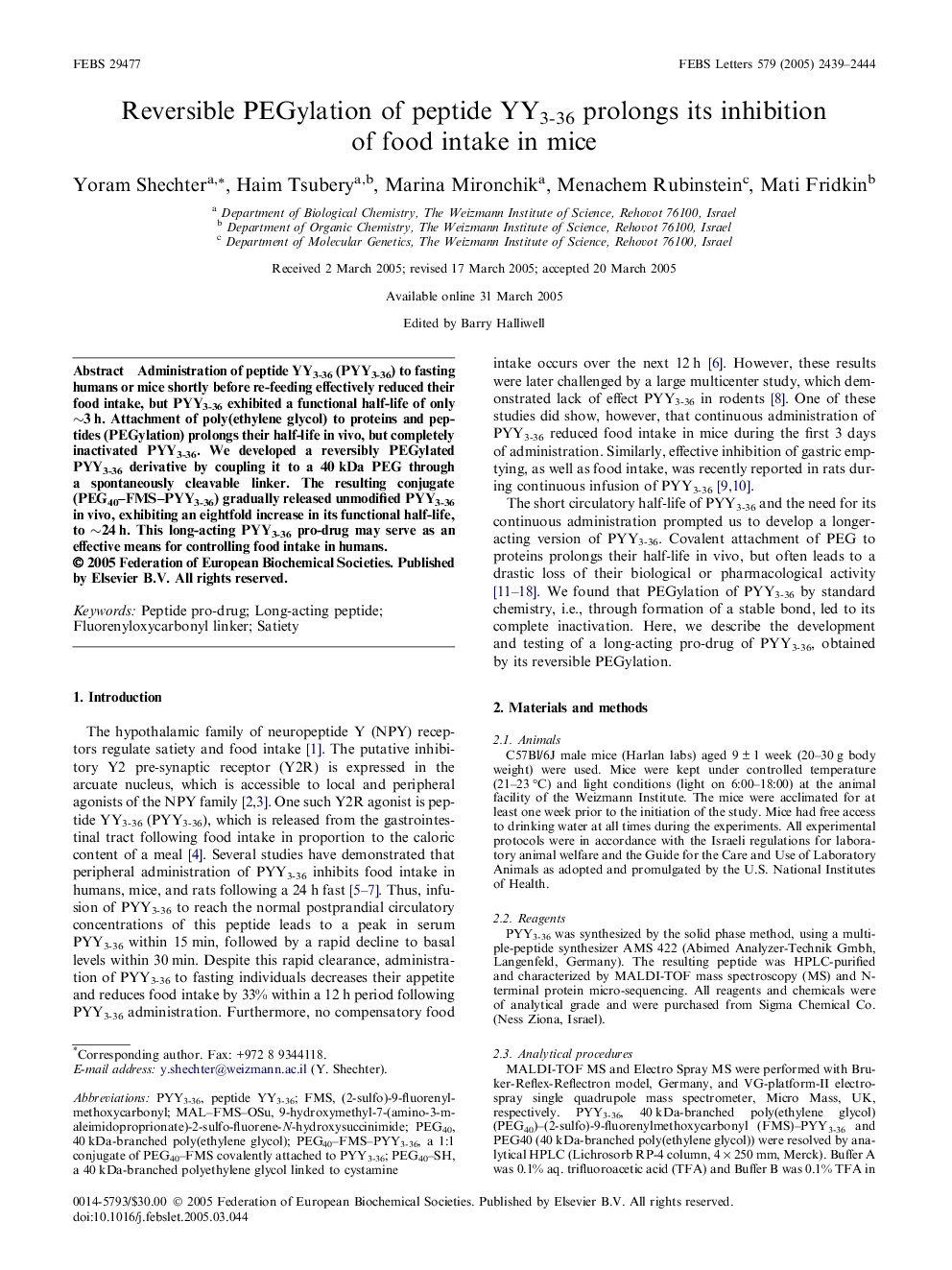| Article ID | Journal | Published Year | Pages | File Type |
|---|---|---|---|---|
| 2053312 | FEBS Letters | 2005 | 6 Pages |
Abstract
Administration of peptide YY3-36 (PYY3-36) to fasting humans or mice shortly before re-feeding effectively reduced their food intake, but PYY3-36 exhibited a functional half-life of only ∼3 h. Attachment of poly(ethylene glycol) to proteins and peptides (PEGylation) prolongs their half-life in vivo, but completely inactivated PYY3-36. We developed a reversibly PEGylated PYY3-36 derivative by coupling it to a 40 kDa PEG through a spontaneously cleavable linker. The resulting conjugate (PEG40–FMS–PYY3-36) gradually released unmodified PYY3-36 in vivo, exhibiting an eightfold increase in its functional half-life, to ∼24 h. This long-acting PYY3-36 pro-drug may serve as an effective means for controlling food intake in humans.
Related Topics
Life Sciences
Agricultural and Biological Sciences
Plant Science
Authors
Yoram Shechter, Haim Tsubery, Marina Mironchik, Menachem Rubinstein, Mati Fridkin,
